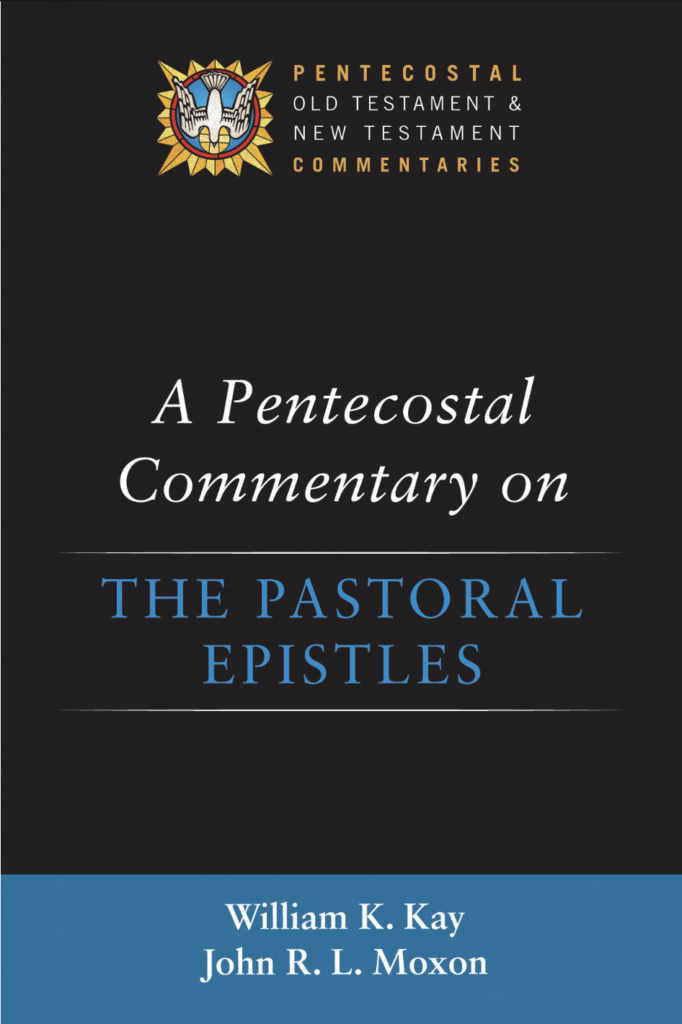
The second volume in a new commentary series, Pentecostal New Testament Commentaries, is out, and it addresses the Pastorals:
William K. Kay and John R. L. Moxon. A Pentecostal Commentary on the Pastoral Epistles. Pentecostal New Testament Commentaries. Eugene, OR: Wipf & Stock, 2022.
As one might expect, the commentary gives “special attention to the typical interests and questions of Pentecostal and charismatic readers” (introduction). The Pastorals are accepted as authentically Pauline. “The view taken by this commentary is that the special character and concerns of these texts are already present in some measure for other NT writers and that they can be explained by (a) a clear second-generation, future-facing orientation, (b) one or more amanuenses or assistants, and (c) a decision to use new, more specifically Hellenistic religious language” (introduction).
The introduction notes that “in terms of the great questions facing us today about church planting, mission, leadership and ‘next generation’ church, these epistles could count as amongst the most significant and exciting of the New Testament.”
The authors specify several reasons to attend to the Pastorals, especially for those in the volume’s target audience:
(1) “The epistles tell us about some of the important ‘second phase’ activities that were needed in early mission work.”
(2) “The epistles help us to realize how the early church organized its ministry in practical terms.”
(3) “Third … is the issue of how one even enters a ministry. If 1 Corinthians were our sole guide, we might imagine this happened by a self-evident spiritual gift or anointing. It perhaps comes as a surprise therefore when in the PE, Paul speaks of ‘aspiring’ to a ministry role (1 Tim 3:1), of the ‘testing’ of candidates (1 Tim 3:10), and a fact often missed, that ministry always occurred in teams (cf. 1 Tim 4:14). The PE certainly know about gifts, prophecy, and discerning spirits (1 Tim 4:1, 14), yet procedures and structures clearly appear alongside them. Equally disarming, of course, is the idea of a disciplinary process (run by the congregation?) that could, we assume, lead to the removal of an elder (1 Tim 5:19), contrary to the oft-cited Ps 105:15.”
(4) “Another eye-catching emphasis in the PE is the theme of holiness…. Whilst imagined in some Pentecostal contexts to be the more or less inevitable consequence of receiving the Spirit, the emphasis in the PE lies on training, formation, safeguarding and accountability.”
